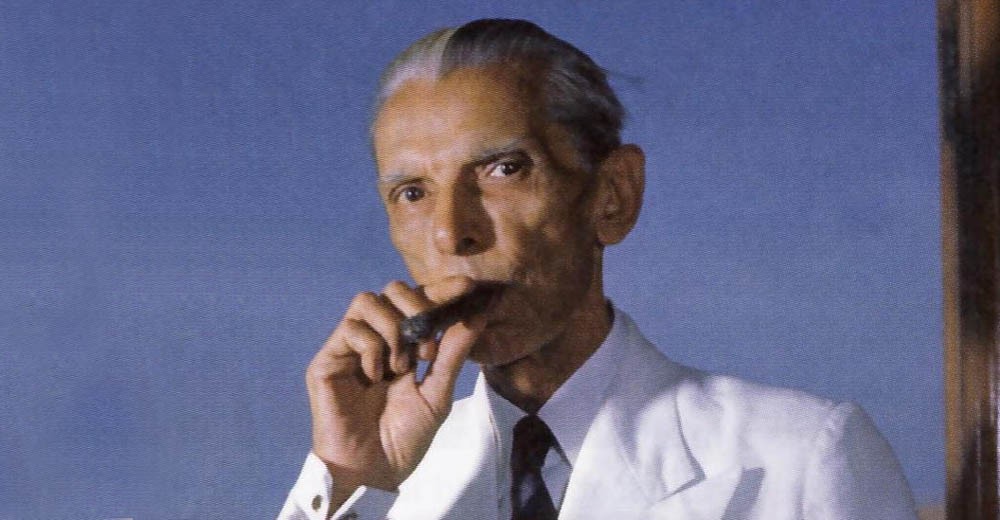
The gradually shrinking secular outlook and increasing religious and parochial influence has taken over our society

Putting it simply, "Secularism is the belief that religion should not play any role in the affairs of the state and government". In other words, "religion should be the personal and private matter of each individual."
Our religious groups and political parties have disingenuously distorted the meaning of secularism. Their self-serving claim is that secularism is an ideology which is anti-religion, or is akin to a godless philosophy. Due to this pernicious propaganda the term secularism has been corrupted to an extent, that to claim to be secular in Pakistan is fraught with danger, and is sure to attract reprisal from the religious segments.
Overt religiosity, leading to religious militancy has increased so much in Pakistan that there seems to be very little hope of adopting secular politics in Pakistan. Yet, if the nature of conflict in Pakistan has to be understood and resolved, secular values like rationality, enlightenment, respect for different cultures and sects has to be adopted.
The main hope lies with the youth of our county. With enlightenment and reasoning as two tools, our youth can pull Pakistan out of gloom and pessimism, and thus emaciate the forces of extremism and terrorism.
Pakistan was never meant to be a religious or theoretic state. The All India Muslim League was formed in 1906 to better the economic, political and social conditions of the Muslims of the subcontinent.
The religious card was used -- somewhat cynically -- by Jinnah and his associates after the trouncing Muslim League got in the 1937 elections. This religious card was used to garner support for a new state for the Muslims of India. This was, however, a temporary phase in Jinnah’s reckoning. He had not imagined that once the gene of religion was out of the bottle, it would be very difficult to put it back.
The kind of state that Jinnah had in mind was to be a progressive, modern, and secular Muslim state, where laws of the state were to be made by the representatives of the people. Such a state was clearly not to be a theocracy.
The idea of the kind of state Pakistan was to become can be ascertained by the Quaid’s speech to Pakistan’s first Constituent Assembly on August 7, 1947. He said, "You are free, you are free to go to your temples, you are free to go to your mosques or to any other place of worship in this state of Pakistan. You may belong to any religion, or caste or creed -- that has nothing to do with the business of the state."
But soon after the Quaid’s death, the nexus between bureaucracy, army, mullah, politicians and big landlords developed to give Pakistan a conservative religious character. It was in this milieu that the objective resolution, giving Pakistan its Islamic character, was passed in the face of stiff resistance from minority members.
Religious conservatism in Pakistani society and various institutions of state increased progressively. It was this increasing religious orthodoxy that forced a secular leader like Zulfikar Ali Bhutto to take certain Islamic measures, the most prominent of which was the declaration of Ahmadis as non-Muslims.
The Zia regime further cemented the ‘Islamisation’ project. After the Soviet invasion of Afghanistan, Pakistani society started becoming radicalised. Pakistan soon became the headquarters of ‘jihad’ against the Soviet Union. Not only the Afghan resistance groups, but jihadis from all over the world came to Pakistan. Many Pakistani militant and sectarian organisations also sprang up.
After 9/11, these militant groups turned against Pakistan, thus creating an existential threat for Pakistan in which more than 50,000 innocent citizens have lost their lives.
The gradually shrinking secular outlook and increasing religious and parochial influence has taken over our society.
In this scenario, the only hope, albeit a faint one, is the secularisation of our politics, or what Dr Moonis Ahmar calls use of the secular tool kit. A secular tool kit is a fresh approach, which aims to understand the nature of conflict and come up with its professional management and resolution without religious sectarian or ethnic biases or prejudices.
The working of secular tool kit in Pakistan faces three major difficulties:
1) A majority of our people are averse to secular ideas as explained before. Secular tool kit works better in societies that are modern, tolerant, and above religious and ethnic prejudices.
2) Since the inception of Pakistan, no clear policy has been followed by the state against religious extremism, which led to extreme violence in the society.
3) No effort was made to promote enlightened and rational way of life. Much would depend on the youth of Pakistan to convert retrogressive and medieval Pakistan into a modern, secular, and progressive nation.
The way forward would be to get rid of social backwardness and exploitation of religion for politics and personal gain. Secular values essentially act as a bulwark against religious and sectarian extremism and militancy. It is also essential to keep in mind the religious, cultural, and ethnic diversity of Pakistan in resolving conflicts.